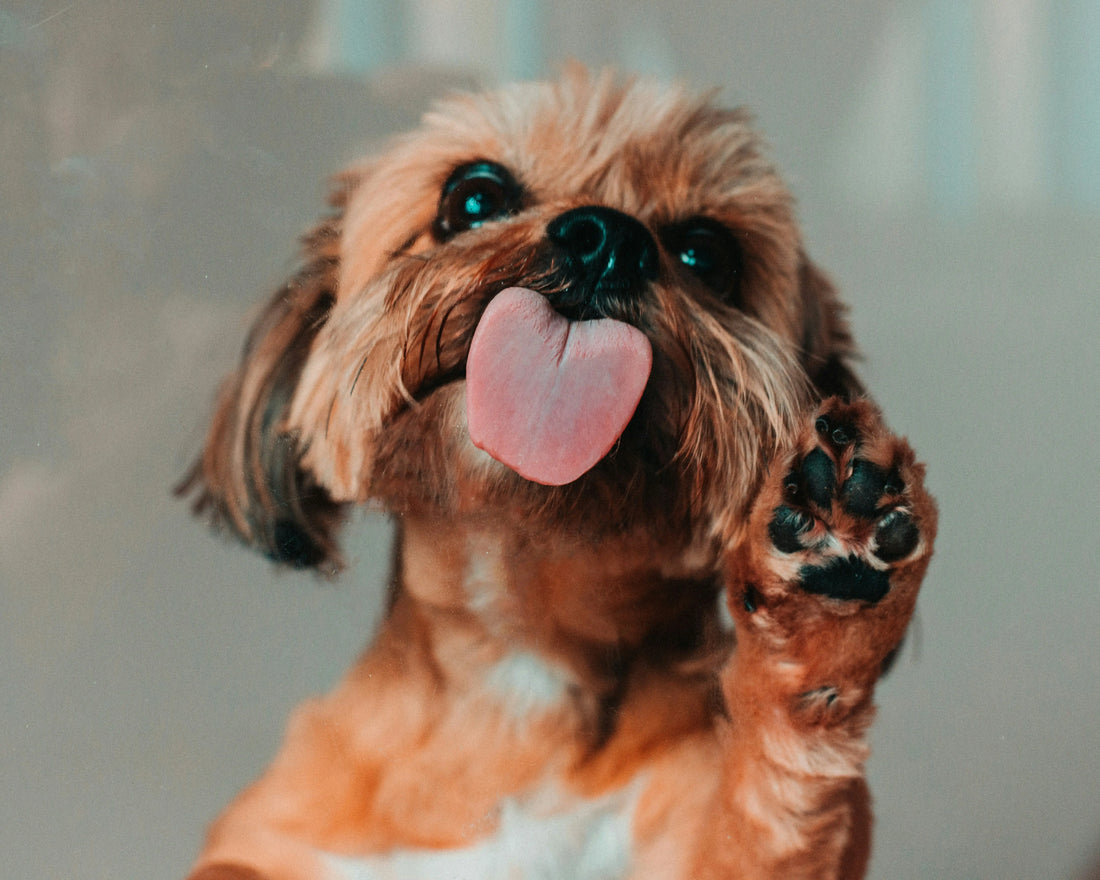
A lick from your dog could make you sick
Share
Bacteria in Dogs’ Mouths: What You Need to Know About Dog Licks
Bacteria in their mouths can be dangerous.
With both of us having young families, Jess and I are very aware of how an affectionate lick might be fine for us but less great for less well developed immune systems. A dog’s mouth isn’t exactly the cleanest place. In fact, a lick from our dogs could potentially expose any of us to harmful bacteria that can make us sick. Even though we love our dogs, we should be cautious about those slobbery kisses.
What’s in a dog’s mouth?
Dogs’ mouths contain a variety of bacteria, many of which are harmless to humans. However, some bacteria found in a dog’s saliva can be dangerous, especially if it enters the human body through a cut or open wound. One such bacterium is Capnocytophaga canimorsus, which can be found in the mouths of healthy dogs and cats. While infections from Capnocytophaga are rare, they can lead to serious illness in people with weakened immune systems, causing symptoms like fever, vomiting, and even sepsis in extreme cases.
Another common bacterium in dogs’ mouths is Pasteurella, which is often associated with dog bites but can also be transmitted through licking. Pasteurella infections can cause swelling, redness, and pus-filled sores, particularly if the bacteria enter the skin through a small cut or abrasion.
Why licking can be risky
Dogs’ mouths are exposed to all kinds of bacteria because of their behaviour. They often sniff, lick, and chew things like food scraps, dirt and even faeces during walks. While a dog’s digestive system can handle many of these substances, the bacteria in their mouths can still pose a risk to humans if transmitted through saliva.
The most likely scenario for bacteria transmission is when a dog licks an open wound or mucous membranes, like those found in the eyes, nose or mouth. When this happens, harmful bacteria can find their way into the bloodstream, leading to infections that may require medical treatment.
Risks to certain individuals
While most healthy adults are unlikely to become seriously ill from a dog’s lick, certain people may be more vulnerable to infections. Individuals with weakened immune systems, including the elderly, young children, pregnant women, and people with chronic conditions like diabetes, are more susceptible to bacteria-related illnesses.
For these individuals, what might be a harmless lick for others could result in a more severe infection. It’s especially important to be cautious if you or a loved one falls into one of these categories, and to avoid letting your dog lick your face or open wounds.
What about the “cleaner than a human’s mouth” myth?
You may have heard the myth that a dog’s mouth is cleaner than a human’s, but this simply isn’t true. Dogs and humans have different bacteria in their mouths, and while some are harmless, others can cause illness. Both human and canine mouths are home to millions of bacteria and comparing the two isn’t particularly useful, as the types of bacteria are very different.
The reality is that while a dog’s saliva may have some antibacterial properties for themselves, it doesn’t mean their mouth is safe for humans. The bacteria in a dog’s mouth are different from the bacteria in ours and some of those can make us sick.
How to stay safe
So, what can you do to reduce the risks without sacrificing the bond you share with your dog? Here are a few simple tips:
- Avoid letting your dog lick your face, especially around the mouth, nose, and eyes.
- Keep your dog’s teeth and mouth clean by regularly brushing their teeth and providing dental chews.
- Wash your hands after handling your dog, especially if they’ve been licking, sniffing, or chewing something questionable.
- Be cautious if you have an open wound and don’t let your dog lick it, as this increases the risk of infection.
-
Seek medical advice if you experience unusual symptoms after your dog licks a cut or wound, particularly if you have a weakened immune system.
While the occasional lick from your dog might seem like a sweet gesture, it’s important to remember that their mouths aren’t free from harmful bacteria. By being mindful of the risks and taking a few precautions, you can keep both you and your dog healthy and still enjoy all the love and affection they have to offer.
If you love learning how dogs think and thrive, explore our range of all-natural supplements designed to support your dog’s long-term health and happiness. Shop all supplements.
